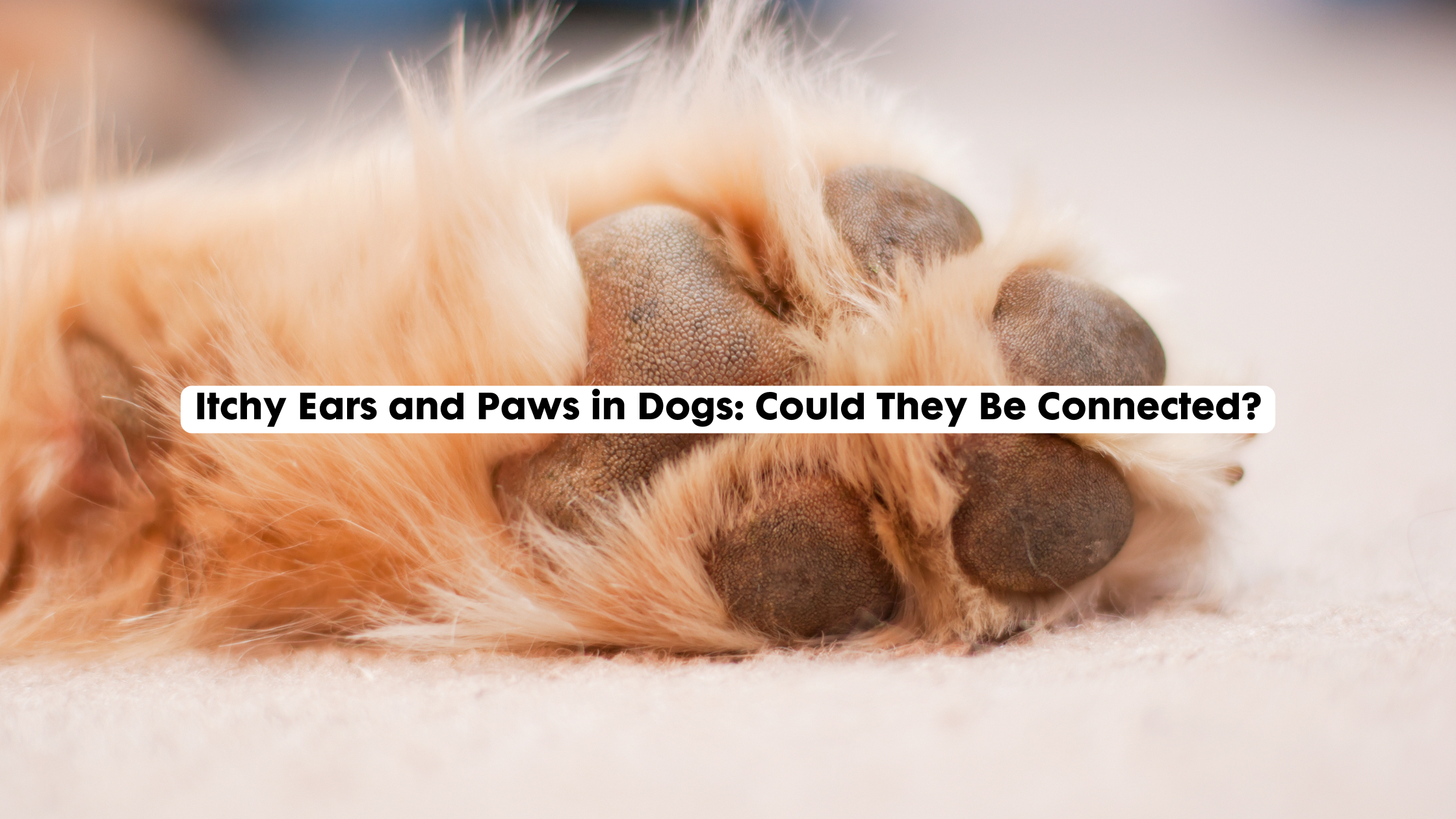
If your dog is constantly scratching at their ears and licking or chewing their paws, you might be wondering — are the two related? Surprisingly, yes. One common link between itchy ears and paws in dogs is yeast.
Many dogs prone to irritated ears and itchy paws are actually dealing with yeast overgrowth, and the symptoms can bounce from one spot to another in a frustrating cycle.
How Does Yeast Affect Ears and Paws?
Yeast is naturally present on your dog’s skin in small amounts, but when conditions are just right — think warmth, moisture, and inflammation — it can quickly get out of control. The ears and paws are ideal breeding grounds for yeast, especially in dogs with allergies or sensitivities.
Dogs often use their paws to scratch or rub at irritated ears. In doing so, they can transfer yeast from their ears to their paws and vice versa. This leads to a cycle of itchiness, licking, and secondary irritation, often making both issues worse.
Signs to Look Out For:
- Red, inflamed ears or paw pads
- Head shaking or ear scratching
- Constant paw licking or chewing
- Musty or cheesy smell (a classic sign of yeast)
- Brownish discharge in the ears
How to Help Break the Cycle
Keeping both the ears and paws clean and balanced is key. Use a gentle, natural ear cleaner like Ear Stuff to help remove wax, reduce build-up, and support a healthy ear environment.
For paws, regular rinsing and drying after walks can help, and a natural balm like Dog Stuff may help soothe irritated skin and create a barrier against allergens and moisture.
If yeast seems to be a recurring issue, internal support is also worth exploring. Supplements like Food Stuff can help support your dog’s skin health from the inside out, addressing underlying sensitivities and promoting a healthier skin barrier.
For full-body support, check out our Complete Itchy Dog Pack — combining Ear Stuff, Dog Stuff, and Food Stuff for total inside-and-out relief.
When to Speak to a Vet
If you suspect a yeast infection, especially one that doesn’t improve with regular grooming or natural support, it’s always best to check in with your vet. They can confirm what’s going on and guide you through treatment if needed.
Final Thought
If your dog has itchy ears and paws, don’t treat them as separate issues. They might be connected by a common cause — and with the right care, you can help break the cycle.
